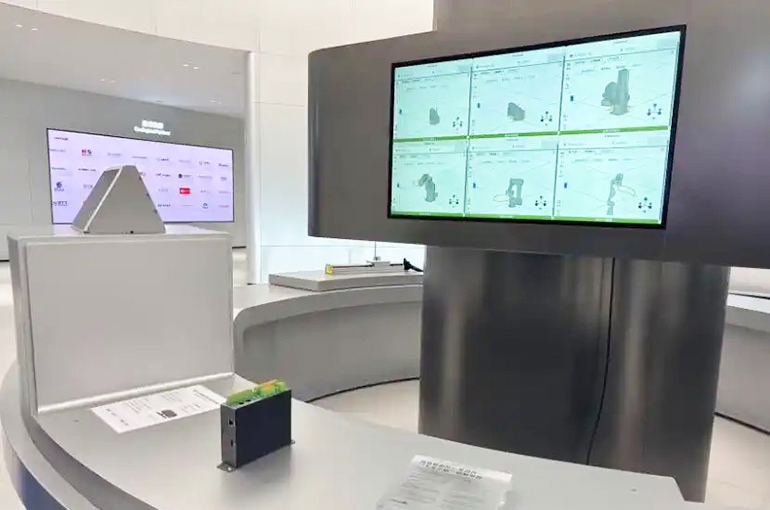 Dongguan’s Manufacturers Pivot From OEM to Self-Owned Brands, Boost R&D Outlays
Dongguan’s Manufacturers Pivot From OEM to Self-Owned Brands, Boost R&D Outlays(Yicai) Nov. 3 -- Dongguan, the southern Chinese city known as the “world's factory,” is shifting from low-cost contract manufacturing to innovation-driven models, with firms raising investment in research and development and creating their own brands to move up the value chain amid labor shortages and evolving market needs.
Some 64 listed companies in Dongguan together spent CNY3.71 billion (USD521 million) on R&D in the first half of this year, an increase of more than 30 percent from a year ago, a survey conducted by Yicai found.
At Guangdong Topstar Technology, the outlay on R&D rose to CNY138 million (USD19.4 million) last year, equivalent to 3.8 percent of the robot maker’s annual revenue, from CNY109 million in 2022, according to figures from data compiler Choice. During a visit to the company's exhibition hall, Yicai saw a robot carry out various tasks by voice command.
The fast early growth of Dongguan’s textile, toys, and electromechanical industries was fueled by its labor advantages, Chen Yingyi, deputy director of the regional development planning research department of the China Development Institute, told Yicai.
But changing demographics and fewer Chinese young people willing to work in factories have made the intelligent upgrading of the city’s industries both a necessity for industrial transformation and a way to ease recruitment pressures, Chen noted.
Yicai also found that local companies are actively breaking free from the traditional OEM model in which they make parts that are used by other firms in their products and are bridging technological barriers and building proprietary brands to move up the value chain.
Zhong Liuxuan, public relations manager at Dongguan Weishi Culture Technology, a maker of trendy toys, said the company has successfully transformed from an OEM to operating its own brand, and its toys are now exported to more than 100 countries and regions.
“The company initially acted only as an OEM for some foreign partners, but we later decided to create our own brand,” Zhong said. “Since then, several product lines under our brand have become very popular in the market and have become trending products.”
Chen told Yicai that in the Guangdong-Hong Kong-Macao Greater Bay Area, where Dongguan is located, manufacturing industry is characterized by rapid product iteration and responsiveness to market demand. As consumption trends increasingly reflect youthfulness and personalization, Dongguan companies must closely track market developments to remain competitive, Chen added.
Editors: Tang Shihua, Tom Litting